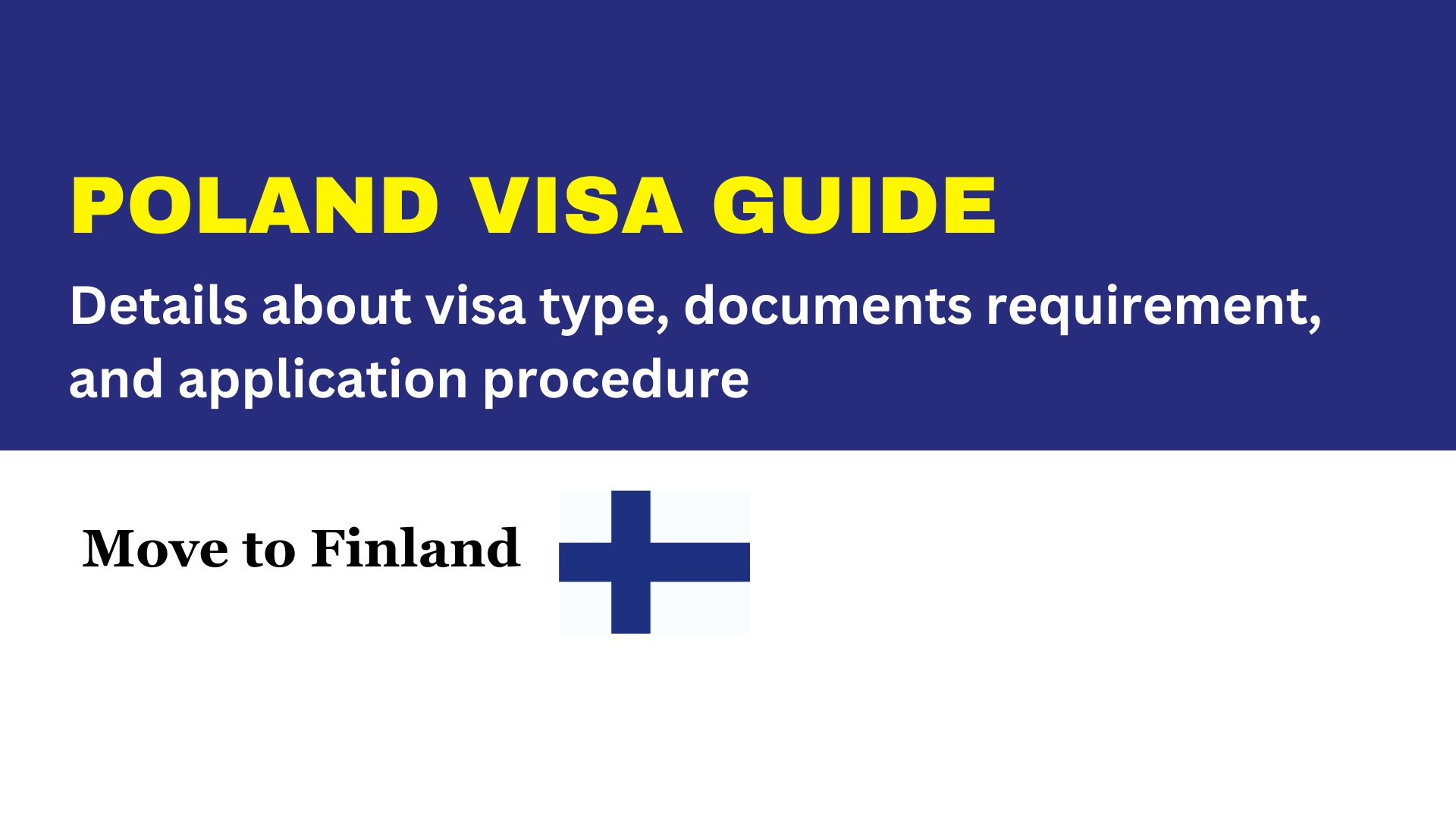I am Areeba, your visa guide expert, and today I have got another handy guide to help you through every step of the process. Poland, with its rich history and warm hospitality, is a prime spot for both quick visits and longer stays. Whether you are planning a brief holiday or a more extended period for work or study, knowing how to navigate the visa application process is essential. This guide is designed to make things simple and clear, ensuring your application goes as smoothly as possible. So make sure to keep on reading till the end.
Understanding Poland Visa Categories
Exploring through the visa categories is the first step to planning your trip to Poland. Visas are primarily categorized based on the duration of stay and purpose of the visit.
Short Stay Visas
Also read Germany introduces Opportunity Card for skilled workers starting June 2024
These visas are suitable for visits of up to 90 days within a 180-day period and are categorized under Schengen Visa (Type C). Common reasons for obtaining a short stay visa include:
-
Tourism
Exploring Poland’s historical sites and natural beauty.
-
Business
Attending meetings, conferences, or conducting business negotiations.
-
Cultural
Participating in cultural events or activities.
-
Medical
Receiving short-term medical treatment.
-
Sports
Participating in sports events.
-
Official Visit
For government officials on duty.
-
Study
Short educational courses or exchanges.
-
Visiting Family or Friends
Visiting loved ones residing in Poland.
Long Stay Visas
For stays longer than 90 days, a National Visa (Type D) is required. These are typically issued for specific purposes such as:
-
Working Visa
For taking up employment in Poland.
Also read Minimum bank statement for Sweden Schengen visa from Pakistan in 2024
-
Student Visa
For enrolling in long-term educational programs.
-
Other
Other purposes not covered by standard categories, such as family reunification.
Special Considerations
-
Multiple Entry Visas
f your travel plans require you to enter and exit Poland multiple times, apply for a multiple entry visa.
-
Long Term Stays
For certain long-term visas, such as a working visa, additional permits like a work permit or residence permit may be necessary.
Visa Application Process
Step 1: Start with the e-Konsulat System
Begin your application at Poland’s e-Konsulat system. This platform guides you through selecting the appropriate visa type based on your visit’s purpose and duration.
Also read Cost of Living for International Students in Ireland 2024
Step 2: Document Preparation
Gathering the correct documentation is critical. Required documents typically include:
- Passport: Valid for at least three months beyond your planned departure from Poland, not older than ten years.
- Visa Application Form: Completed and signed.
- Photos: Two recent passport-style photographs.
- Visa Fee: Fees vary depending on visa type; for example, the Schengen visa typically costs €80.
- Supporting Documents: Depending on the visa type, this may include letters of invitation, travel itineraries, proof of financial means, accommodation details, and health insurance coverage.
Step 3: Scheduling and Attending the Visa Interview
After submitting your initial application online, the next step is to schedule an interview at the nearest Polish embassy or consulate. During the interview, you will need to provide your biometric data and possibly additional documents. It is a important step where the consular officers assess your application based on the information and documents provided.
Also read Understanding the Provincial Attestation Letter (PAL) for International Students in Canada
Where to Apply
You should apply at a Polish embassy, consulate, or a visa application center in your country of residence. If there is no direct Polish diplomatic mission in your country, you may need to apply through another Schengen member state representing Polish interests.
Visa Processing Time
The processing time varies significantly based on the type of visa, the specific consulate handling the application, your nationality, and the completeness of your application. While some visas can be processed within a few days, others may take weeks or even months.
Best Time to Apply
For short-stay visas, it is recommended to apply at least 14 days in advance of your travel date but not more than six months prior. For long-stay visas, check specific deadlines and requirements.
Conclusion
Applying for a Poland visa requires careful planning and attention to detail. By understanding the types of visas available, preparing your documents carefully, and following the application steps outlined in this guide, you can enhance your chances of a successful visa application. Whether you are exploring Poland for a short visit or planning a longer stay, the beauty and culture of Poland await.

